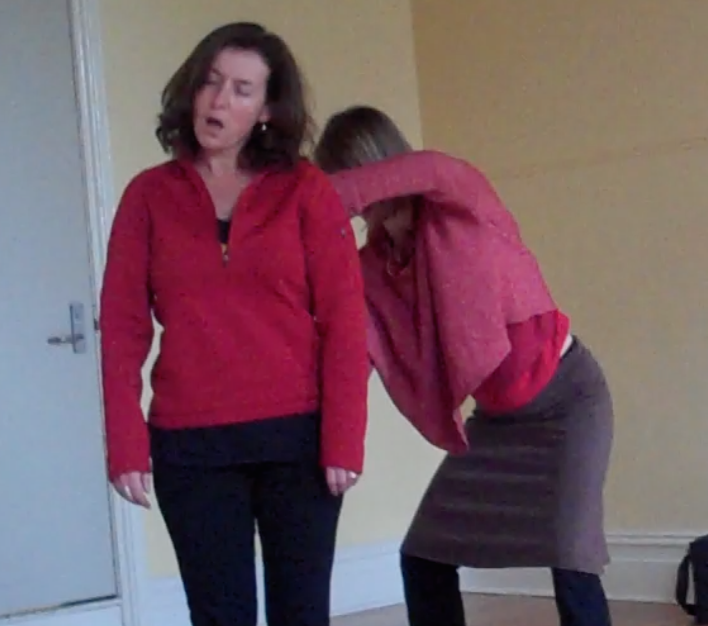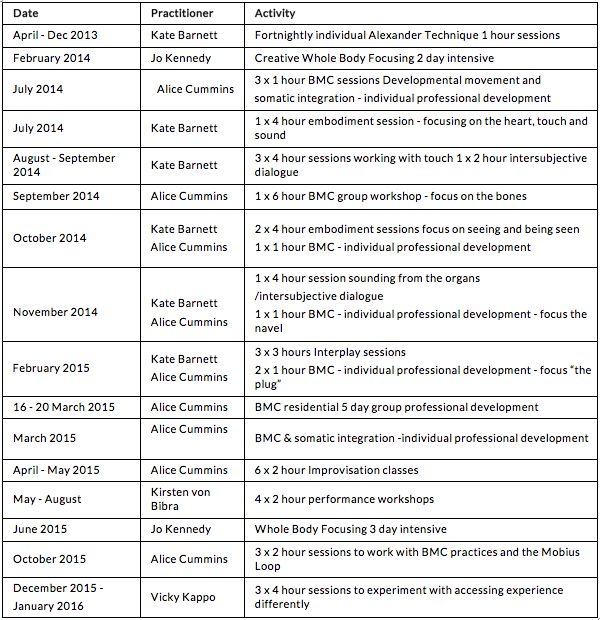
In discovery workshops I utilised first-person methods with four body-centred practitioners, Kate Barnett, Alice Cummins, Jo Kennedy, Kirsten von Bibra and Vicky Kapo. In the following chapters I will use their full names to begin with but when describing a particular session I will refer to them by first name only. I recorded my first-person experience through notes, journals and at times, with their permission, via video.
Space does not permit an extensive analysis of the polarised debates around the value of first-person methods. In brief, the tensions lie between the idea that first-hand experience has value but requires valid forms of investigation, and the opposing idea that first-hand experience has no scientific value at all (Ginsburg, 2005). I have taken my lead from Ginsburg who sets aside the polarised debate and points out the curious overlaps of seemingly disparate views. For example, both positions are “unwilling to take verbal reports of naive subjects at face value” (p. 2). Validating first-person methods is not about dealing with the problem of purely private descriptions of experiencers. For Ginsburg, what is at issue is not whether first person methods are valid forms of investigation, but how these kinds of investigations can have merit and rigour.
For Varela and Shear, this merit and rigour come about by exploring subjective phenomena in a way that is “open to inter-subjective validation” with explicit and active “methods and procedures for doing so” (1999, p. 2). Ginsburg insists that if we are going to use first-person methods then we must “develop ways of improving our ability to be observers…that it is essential that experimenters and observers in general explore being subjects, and take responsibility for being part of their investigation” (2005, p. 6). First-person methods allow for processes whereby “consciousness is turned back to the experience itself in order to affect a shift in that experience. This is the element of awareness which is in this case a listening, or attending to the self while acting and moving” (p. 16). For these reasons, I invited the embodiment practitioners to engage in an inter-subjective dialogue with me regarding events that transpired during discovery workshops. The following table (Table 1) outlines my discovery workshop schedule.

Table 1: Discovery Workshop Schedule
The aim of the discovery workshops was to augment, build and describe my attunement capacity. The body-centred practitioners lead some sessions whilst at other times I brought a research inquiry to the session.
